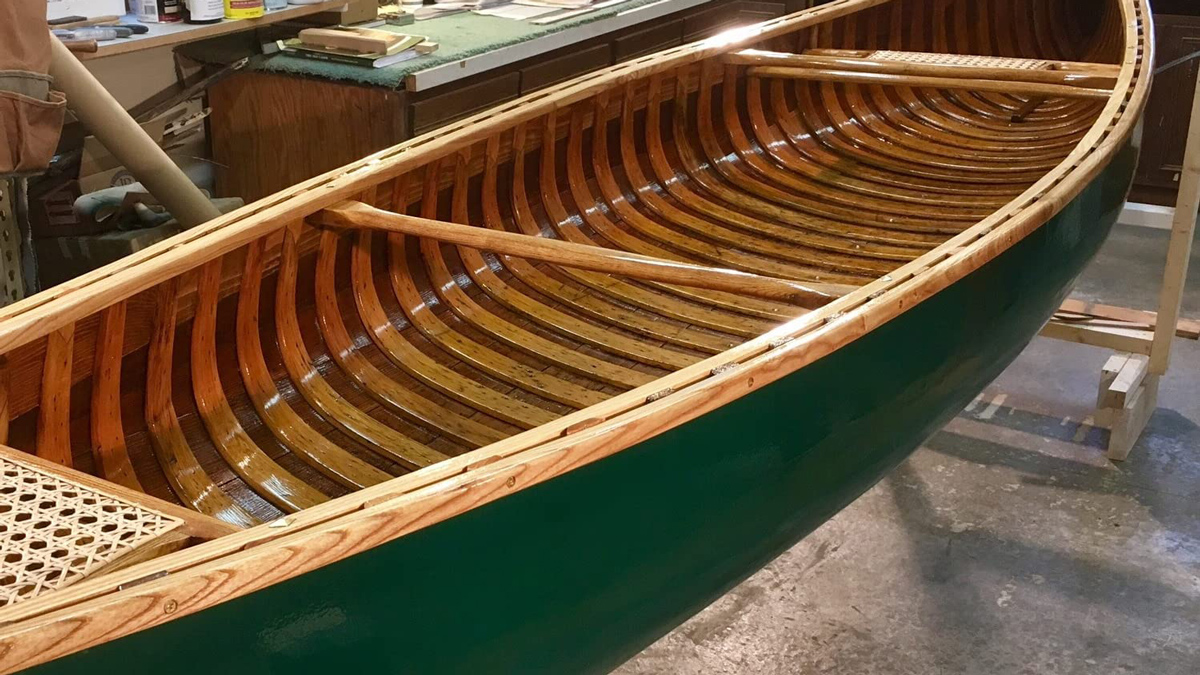Is your boat restoration still gathering dust in the yard? Psychologist Mark Shiner has some wise words for staying motivated to finish the job
Procrastination is the art of busily doing nothing while another part of you gets really disappointed about it.
I’m a serial procrastinator. Phew, glad to get that out in the open. Given that I teach Maritime Studies and psychology, I thought it was time to address the problem of my own six-year boat restoration.
So what does the science of psychology say about it? Let me take you on a tour of some of the theories and the tactics we can employ to beat the restoration blues.
Why we don’t succeed at restoring a boat
Overdoing it
Overdoers take on too much. When my Halcyon 23 Kaikoura arrived at the boatyard, I started by pulling out everything: headlinings, cushions, rotten locker tops, fittings, etc. I then instantly had a job that looked far bigger than it had originally. Now, all these things probably did need dealing with but I had made the mountain twice the size. Some people revel in such a clean slate. However, decide if that is you before you strip out the boat.
Article continues below…
How to buy an old boat as a project – DIY yacht restoration advice
Growing up sailing on the East Coast it’s fair to say that I caught the bug pretty early on. Family…
Best boat varnish: 7 top options for gleaming woodwork
Few things are as quintessential to the archetypal sailboat as gleaming, iridescent woodwork that is indicative of a recent coat…
Shipwrecked in a 14ft keelboat then rescued by a cargo ship
Yann Quenet is a genius from Brittany I would love to meet. He is an inventor, designer, and builder of…
Perfectionism
Perfectionists make great procrastinators. A sense of perspective is vital. You are not the historical steward of a 1905 Fife yacht, which you’re merely looking after for the next generation.
Your pride and joy might simply be a stepping stone to a bigger boat that you will move up to in the next five years or less. The big question for perfectionists is, “Do you want to sail this boat or polish it?”
Depression
Depression can manifest itself in feelings of hopelessness and helplessness, leading to self doubt. No, you may not actually be suffering from depression but faced with a huge restoration task, it’s not hard to find yourself experiencing these feelings. Early on in my restoration I’d find myself going to the boatyard and just staring at it all. I would get distracted very easily, putting off one job to tinker with another. Part of the problem was that there were no significant rewards. We need these to spur us on. Motivation is not something you bring to the party, it’s something you have to make at the party.
At the start of my restoration I tackled the tiny, often dirty, invisible jobs first. The plan was to reward myself at the end with the fulfilling tasks of hull and deck painting, varnishing, new boat-name decals and the like. These tasks would be the cherry on the cake, something to aim for. This actually had the opposite effect.

Kaikoura was in a sorry state when Mark Shiner bought her
After working away on one thankless task after another, each time I returned to the boat it looked like its same dilapidated self. Visually there was no intrinsic reward.
I decided to change that. I borrowed a small generator from a friend, took a palm sander, rubbed back the hull and deck and painted them. This made a huge difference. Now I was working on a smart looking boat with potential, and the huge list of jobs I have are just improvements on an already-nice boat. That is what I mean by making your own motivation.
Lack of deadlines
Procrastinators often rely on deadlines to get the job done. You know the situation, you might even be one of these people. I know I am. Put off a job until it goes ‘to the wire’ then ‘pull an all-nighter’ and miraculously the thing is done. All finished and shining in the morning sun.
Well, in this case forget it. There is no deadline. Boats can languish in boatyards for years. No-one is going to call time unless you get kicked out of the yard.
Lack of confidence
You are working on a boat that will take you to sea. What if you don’t do a task properly? What if something breaks, leaks, falls off or stops working because you messed it up? Feeling like that is sure to make you procrastinate on a job. If you have jobs that you don’t feel confident about, don’t delay! Get someone else to do it, get help, or get the knowledge you need. The only thing you should not do is do nothing.

The shiny red hull was much more uplifting to see on arrival at the yard
Peer pressure
It’s all too easy to carry out the restoration that other people think you should do. A friend of mine, a professional yachtsman, said to me, “What you want is a fin keeler with an inboard engine. That way she’ll point as high as possible and you’ll not have the prop coming out of the water in a swell as you would with an outboard.”
Wise advice. The problem was, my inboard engine was knackered. Totally shot. I hadn’t realised that until after I’d bought the boat and dragged it out of its hedge 30 miles away. The twin cylinder petrol Albin 021 had an ominous patch of burnt paint around the water jacket and the view through the sparkplug hole was a mass of rust.
Displacement activity
That didn’t stop me from downloading a manual and poring over YouTube videos and parts lists. I wasted hours. This is classic displacement activity, which occurs when a person or animal faces two conflicting options (fix the inboard or get rid of it) and chooses a third, unrelated, activity (immersing yourself in videos of vintage marine petrol engines). The engine was useless, but I had set myself a standard that meant I had to have an inboard engine so I was hitting a dead-end.
In the end I took the engine out and fitted an outboard bracket. The boat is 19ft on the waterline. All I really need for my planned adventures is an outboard.
When faced with peer pressure, and unable to meet expectations – perhaps due to budget or skill – you need to have a good long look at yourself, the boat and your sailing goals.
Another example was the heads. The seacocks on my old porcelain sea toilet were gate-valves. Having priced up (and ruled out) new seacocks I thought about ways to test the gate valves and more displacement activity. I poured water into the closed gate valves, watched it leak out the other side, cast an eye over the shocking brown crud on the old toilet itself and thought “Bucket and chuck it!”. Out with the lot, cap the skin fittings, sail safe.
And that is perhaps the point. Consider the sailing you are going to do rather than attempting to equip your vessel for an Antarctic Survey. Never compromise safety, of course, but sometimes gadgets create room for water to get in and with a small cheap boat you might be better off without them.
Top tips for procrastinators
Here are my tips for busting through procrastination and getting your boat finished. Not all will work and you may have ideas of your own. If so, that’s great! Send them to pbo@futurenet.com
- Admit you have a problem. Only you will know when a project has become a millstone around your neck but until you do, nothing will change.
- Make a to-do list… maybe. Well, yes everybody suggests that; however these lists can be as demoralising as they are helpful. Initially keep the list broad-brush such as ‘hull paint, engine, wiring, rigging, sails etc’ Then decide which department you want to concentrate on first and further itemise that before moving on.
- Avoid distractions. Arrive at the yard with a clear idea of what you want to do and the tools to do it. Don’t allow yourself to go off-track.
- Do highly visible jobs sooner rather than later. It is not always possible to paint the boat first without later messing up the paint job but try to give yourself a beautiful boat to work on. It is easy to think you will get bored with the lesser jobs after that and run out of steam but in my experience it is the other way around. The better she looks, the more energy and enthusiasm you will have.
- Don’t try to do too much at a time. If you arrive with a huge list of tasks you’ll always leave disappointed. Have goals for the session and a couple of spare jobs in reserve for if it all goes really well.
- Scythe your way through small jobs like an avenging angel! What I mean is, dash off small tasks and don’t look back; see them as a sub-list and just get them done. Treating such jobs as singular mini-projects with a pause for a cup of tea and a biscuit after each is a waste of time. Have time-oriented breaks, not job oriented ones.
- Don’t confuse research, reading and dreaming for actual work. These things are important but next time you go to see your boat it won’t be any further on for all the mental effort you put in. Recognise displacement activity for what it is.
- It is not always fun. Accept that sometimes you have to grit your teeth, roll up your sleeves and grind away at really nasty, boring jobs. The reward for these only comes at the end. I find loud, busy music helps.
- Don’t be paralysed by fear of failure. If you don’t have the confidence to do a job, get help. No two ways about it, it won’t happen otherwise. Be honest and aware of your limitations.
There is a maxim in violin-making. ‘Start off being really impatient and get more patient as you get closer to the finish.’ To explain; the maker has to saw up lumps of wood to a rough size, make the sizes a little finer, then carve out a rough shape before adjusting the patience levels to get the really skilled stuff right. Do this with your boat. Get stuck into the big tasks, fix that hole in the hull so you can get a lick of paint on. If the boat is not a national treasure you can cut yourself a little slack on the finish – honestly! Put that new teak deck on, clean up the spars. Then with a smart looking boat, start concentrating on the details. Ask yourself, does your boat need to be up to explorer spec or can you simplify the things on board like I have with the engine and toilet? I’m not advocating that you cut corners for a moment, but ditch what you don’t need.
Finally, don’t lose sight of why you are there. You want to sail. You want to cast off your lines and head into the offing. In the words of the Electric Light Orchestra: Hold on tight to your dreams.
Why not subscribe today?
This feature appeared in Practical Boat Owner magazine. For more articles like this, including DIY, money-saving advice, great boat projects, expert tips and ways to improve your boat’s performance, take out a subscription to Britain’s best-selling boating magazine.
Subscribe, or make a gift for someone else, and you’ll always save at least 30% compared to newsstand prices.
See the latest PBO subscription deals on magazinesdirect.com







